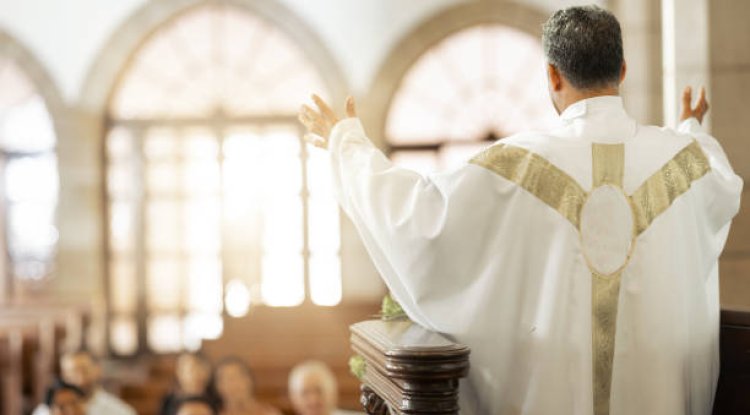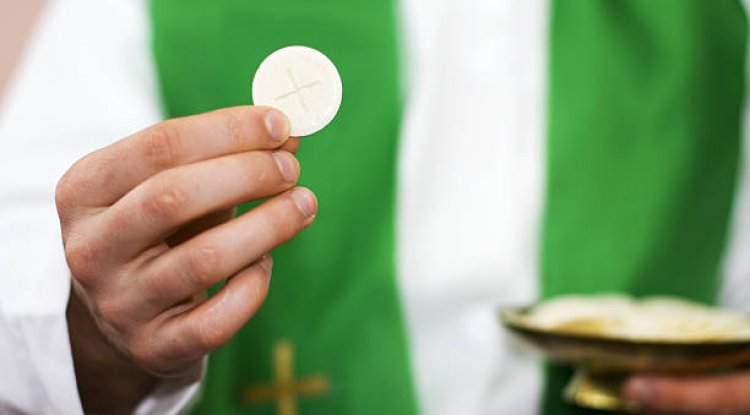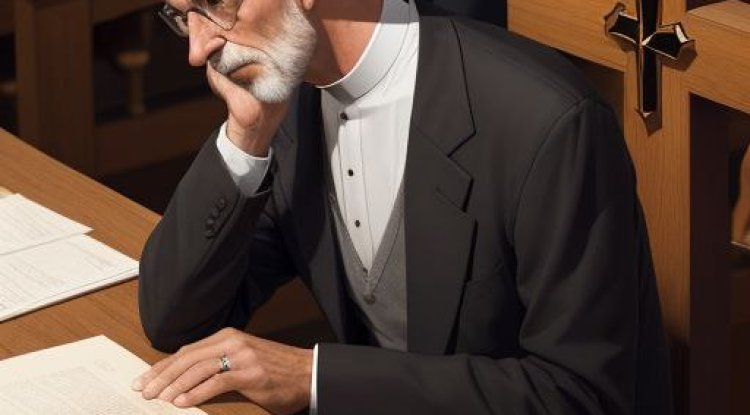WHAT ARE YOUR FEARS?
HOMILY FOR SECOND SUNDAY OF EASTER (DIVINE MERCY SUNDAY) YEAR B. Readings: Acts 4:32-35; Psalm 118; 1 John 5:1-7 and John 20:19-31.

Today is a day of mixed feelings. The memory of the crucifixion is so fresh in the minds of the apostles, and they lock themselves in the upper room for fear of the Jews, most likely in the thought that what had befallen their master would be their fate as well. Probably the voices of the murderous crowd shouting “Crucify him” still echo in their ears and their peace is distorted. When they saw the risen Lord, they were glad. So, we can place side by side their fear of death and the joy of the resurrection. If we believe and have faith in the resurrection, why do we still live in fear?
In the course of the week, we followed Christ’s apparitions to Mary Magdalene, to the two disciples on their way to Emmaus, and to the eleven. Today, John’s gospel presents to us his greeting of peace and the commissioning of the disciples as He says “Peace be with you. As the Father sent me, even so I send you” (vv. 19-21). He breathed on them and said to them, “Receive the Holy Spirit. If you forgive the sins of any, they are forgiven; if you retain the sins of any, they are retained” (vv. 22-23). This moment became the turning point for the apostles in the power of the Holy Spirit which they had received. For, their fears diminished while boldness took over. Being filled with the Holy Spirit, they left their self-imposed prison to go out and spread the message of Jesus, just as he had commissioned them to do.
It is noteworthy that we celebrate on this day, the institution of the sacrament of reconciliation where with forgiveness of sin, Christ breathed on the apostles saying, “Receive the Holy Spirit, whose sin you forgive are forgiven…” We recall in Gen 2:7, God breathed on man to give him life. Today Christ breathes on the Apostles to restore life to one that is spiritually dead and gave them the power to forgive sins. This power is reserved for God alone, and when the priest forgives sin, he does so only with the authority of Christ bestowed on him. At this point, we cannot subject God’s mercy to human reasoning.
Thomas was not with them when Christ first appeared to the disciples. Probably he was the boldest of all to go out since others were living in fear of the Jews. We know fear to be the opposite of faith. Even Christ, when walking on water, associated Peter’s fear with lack of faith. This was what Thomas lacked, the faith to believe Divine revelation. Our penny catechism tells us, “Faith is a supernatural gift of God, which enables us to believe without doubting whatever God has revealed.” Thomas was bold and was without fear, but did not believe in the resurrection. He refused to believe that the others had seen Christ, he demanded a pragmatic proof which he received when Christ said to him, “Put your finger here and feel my wounds” (v.27). At this instance, he recognized his frailty and not only believed in the resurrection but confessed that Jesus Christ is God when he said, “My Lord and my God” (v.28). In a subtle manner, Thomas was so slow to believe but when he eventually did, he offered a valuable insight into God’s mercy and kindness. Through him, Christ invites us to be confident in his words, “Blessed are those who have not seen and yet believe” (v.29). If we cannot see the risen Lord, we can see something else: the Christian community, which is the evidence that Christ is alive and is with us.
Bearing witness to Christ is evident in the words and actions of the early Christians as St. Luke presents in the first reading, “The company of those who believed were of one heart and one soul… they had everything in common… No one was needy among them, they sold their possessions of lands and houses, brought the proceeds to the apostles’ feet; and distribution was made to each as any had need” (Ats 4:32-35). In the action of the disciples, we see in a practical way the song, “Ubi caritas et amor, ubi caritas Deus ibi est” (where charity and love are: where charity is, God is there). We do not need to have in abundance before we share with others, we can begin from the little we have. Generosity is one of the major characteristics of the early Christians in bearing witness to Christ.
This witness of the apostles lingers to later generation as it appears in the second reading. St. John speaks to other followers of Christ who did not have firsthand witness to the risen Lord. He said to them, “Everyone who believes that Jesus is the Christ has been born of God… for whatever is born of God overcomes the world; and this is the victory that overcomes the world, our faith” (1Jn 5:1;4). Our faith and belief in Jesus Christ who came by WATER and BLOOD. This was a clear contrast to Thomas who was with Christ but so slow to believe in the Lord’s resurrection. Notwithstanding, when Thomas recovered from his doubt, he offered a valuable insight into God’s mercy and kindness.
The allusion to water and blood of Christ already speaks loudly of today being Divine Mercy Sunday, as blood and water gush forth from the side of Christ on Good Friday, which began the novena to this Sunday’s celebration. We pray through St. Maria Faustina, that God will destroy our fears, have mercy on us and on the whole world. Amen!
Happy Divine Mercy Sunday!
Fr. Ken Dogbo, OSJ
What's Your Reaction?



















